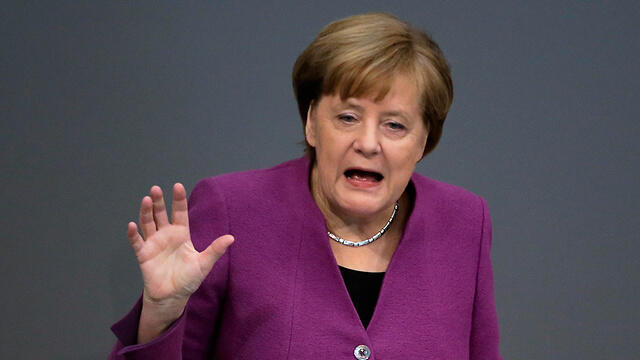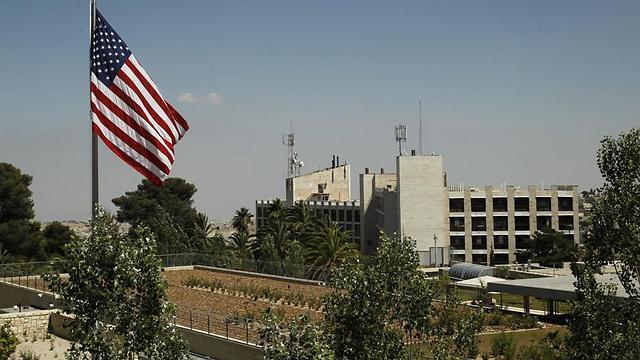Getting your Trinity Audio player ready...
German Chancellor Angela Merkel defended the Iran nuclear deal in an interview with an Israeli TV channel, saying an imperfect deal is better than no deal and that her country will "watch very closely" to ensure it is being fulfilled.
Her comments were broadcast Sunday, ahead of a meeting in Washington this week with President Donald Trump who vows to withdraw from the agreement by May 12 unless US and European negotiators agree to fix what he calls its serious flaws. Separately, French President Emmanuel Macron, a fellow defender of the Iran deal, begins a state visit in the US on Monday.
The 2015 deal, negotiated by the US and other world powers, curbs Iran's nuclear program in exchange for easing economic sanctions. Prime Minister Benjamin Netanyahu has vehemently opposed the agreement, saying it falls short of containing the nuclear ambitions of Iran, a declared foe of Israel.
2 View gallery


German Chancellor Merkel said an imperfect Iran deal was better than no deal at all
(צילום: AP)
Merkel told Israel TV's Channel 10 that she can understand the "great worries in Israel, concerning what is emanating from Iran."
"The issue on which we disagree is how we can best contain this," she said. "Prime Minister Netanyahu believes that the nuclear deal with Iran does not provide the security Israel desires. We believe it's better to have this agreement, even if it is not perfect, than to have no agreement. We will continue to discuss this, but Germany will watch very closely to ensure that this agreement will be fulfilled."
Germany remains one of Israel's closest allies, but the relationship has been strained at times over the Netanyahu government's settlement expansion in the West Bank and east Jerusalem, which the Palestinians seek for a future state.
"I think this situation causes some headaches because the two-state solution is not becoming more likely through a policy of settlement building," she said. "Therefore, we have a difference of opinion."
2 View gallery


Location of the future US Embassy in Jerusalem. Germany will not be following suit with an embassy move, Merkel divulged
(צילום: עטא עוויסאת, ידיעות אחרונות)
She said Germany will not follow the example of the United States, which is moving its embassy in Israel from Tel Aviv to Jerusalem next month, in the wake of Trump's recognition of Jerusalem as Israel's capital.
Reiterating long-standing policy, Merkel said the status of Jerusalem can only be determined in negotiations. The Palestinians seek the Israeli-annexed eastern sector as a capital.
Despite some policy disagreements, Germany will always have a special relationship with Israel, "stemming from the eternal responsibility we bear for the Shoah," she said, using the Hebrew word for Holocaust, the genocide of an estimated 6 million Jews by Nazi Germany.
Merkel said she is "saddened" that her country has not been able to snuff out anti-Semitism for good, and that to this day, Jewish schools, kindergartens and synagogues require police protection.
Footage of recent anti-Semitic attack in Berlin
(צילום: הפורום היהודי נגד אנטישמיות)
"We have refugees now, for example, or people of Arab origin, who bring a different type of anti-Semitism into the country," she said. "But unfortunately, anti-Semitism existed before this."
The chancellor, who was last in Israel in 2014, said she would visit in the second half of 2018, as part of high-level meetings involving Cabinet ministers from both countries.




